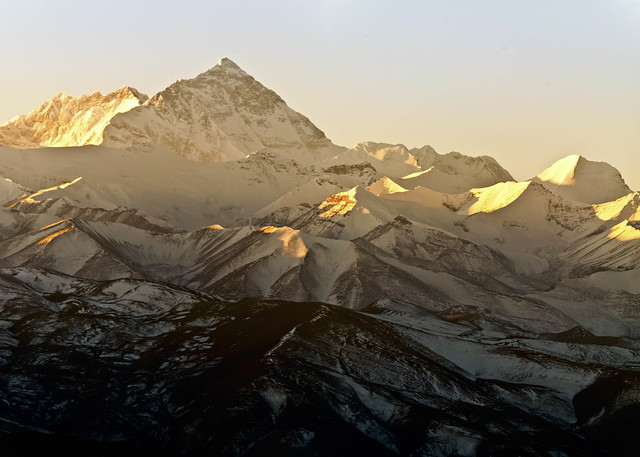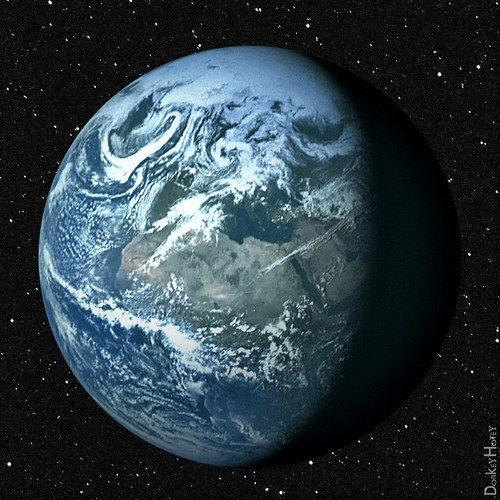Really, I did.
Yet, it was one of those things that simply slipped my mind.
However, here it is. I found this blog entry unexpectedly, and thought that it was just about time, finally, to get this published, in the process of decluttering my unpublished entries.
So, here is a blog entry that, for all intents and purposes, was supposed to have been published more than two months ago!
The last few men who occupied the Oval Office have been defined by their weaknesses more than anything. Whether this is a sign of their mediocrity, or of society's staggering levels of cynicism these days is open for debate.
However, we look at Barack Obama, George W. Bush, and Bill Clinton based more on what they are not, and what they did not do, then any achievements that they may have had while in office.
Many supporters of Obama felt disillusioned by a seemingly neocon approach to his duties during the first term, which some even suggested amounted to Bush's third term. He is undeniably an intelligent man, but certainly fell short of many of his campaign promises in 2008, particularly during that first term (and the first two years of the next term, frankly). That disappointment has largely defined him and his presidency, and despite some impressive things since the Republican victory in November, he has a long way to go before he could seriously get out from under that shadow.
George W. Bush advocated a philosophy of picking yourself up by the shoelaces, making good decisions, working hard, and creating your own fortunes. He himself was born with a silver spoon in his mouth, was given everything even if he did not earn it, such as numerous chances from screwing up, both with business ventures that failed, as well as substance abuse. Still, his name was able to carry him to the high office in the Governor's Mansion in Austin, and he became the man corporate American promoted for their cause. Having friends in high places helped after he lost the 2000 election, since he nonetheless got yet one more chance after a failure, as the Supreme Court appointed him to the Oval Office. But despite all of these failures, he will always be defined by the numerous failures that defined his presidency.
Bill Clinton was a self-made man, coming from a middle class background and rising all the way to the White House. He was a hugely successful politician, and I remember some political pundit suggesting that he was the best put together politician since JFK. Obviously, he enjoyed tremendous success, winning multiple terms as Governor of Arkansas, then beating out incumbent George H. W. Bush, who only a short time earlier had looked unbeatable. Clinton easily won a second term four years later. Yet, he was always plagued by perceptions that he had questionable ethics and could not be trusted. The numerous sex scandals were really not the business of the American people, but they wound up dominating headlines for too much of his presidency, adding to this sense of his being slick and untrustworthy.
To make a long story short, there are few presidents that are truly great and honorable men that bring honor and intellect into the Oval Office.
There used to be a time, however, when there were such towering figures in the United States, and the first four men to hold the Office of President were such men. While they each certainly had their opponents and detractors, their character and staggering list of accomplishments, even outside of their time serving in the highest office in the land, imposed a measure of respect that their detractors just could not take away from them on any permanent level.
Washington, Adams, Jefferson, and Madison were among the most accomplished and impressive men in American history, each for different reasons. They were imperfect men, to be sure. But they transcended their own limitations to achieve some incredible things, and their legacy continues to live on to this day. Collectively, they raised the bar very high for the highest office in the land, and allowed a new nation to grow and prosper.
These days, the nation has grown probably too powerful, to the point that many look at it as a de facto empire. What we have learned, based on what we have seen, is that it is probably a lot more difficult to stay on top than to reach it.
What we have witnessed in recent decades, probably since around the time of the assassination of JFK, is a steady decline for the nation. That singular event seemed to amount to the end of an era, or even, cliche as it might sound, an end of innocence.
While Johnson did some truly impressive things for the country on the domestic front as part of his "Great Society" program, with the civil rights legislation that he pushed through, the war on poverty, and the campaign to "Plant for a More Beautiful America", he will nonetheless always also be remembered for the mishandling of the war in Vietnam. It was also during the Johnson years that the Warren Commission came out, which was the official account of the Kennedy Assassination. A vast majority of Americans did not believe the official story, and this skepticism, blended with the skepticism revolving around the Vietnam War and the other polarizing changes that the nation was going through, led to a greater level of cynicism throughout the country.
I hardly need to elaborate on Richard Nixon, because he will always be defined by the scandal that first threatened forced him out of the White House and ended his second term prematurely. With this scandal, the American public was getting used to holding leaders with a strong measure of cynicism and even contempt.
The scandals of Jimmy Carter seem pretty mild by comparison to what came before, and what would come after, with the Iran Contra scandal and Savings and Loan scandal of the Reagan years, and the scandals that would follow and, indeed, define the presidencies mentioned above.
Keep in mind that the country seemed to be deteriorating on many levels during this entire era, with the war in Vietnam piercing the previously impregnable image of the American military, than the decline in living standards which started roughly in 1973 by some estimates. Japan had an explosive period of economic growth that also seemed to have that nation flexing strong economic muscles, while America seemed clearly in decline.
There were economic boom periods, supposedly, during the eighties and nineties. But real wages, as well as benefits, were declining during that entire period. While mindless, boastful, parading patriotism was up, the American standard of living was on the decline. It only became obvious during the Bush years, when the economy really never grew very strong, and particularly in the aftermath of the near economic collapse of 2008.
Now is the time that we could really use a unifying figure stepping into the White House. Now, we could use another Washington, or Jefferson, or Lincoln, of Roosevelt (either one).
The thing is, are we even capable as a nation of having such a figure? Even if there was such a one, could he or she truly get beyond the political divisions of this era, which have grown crazily out of proportion?
Today, the momentum seems to be with a decline. We have mediocrity in office, helping to produce mediocre results. These mediocre so-called leaders are bought and sold by those who pay big bucks to get them elected, with the expectations that they will then have their interests served. It's simply a business investment, and they expect that their investment will reward them richly down the road.
It has worked so far for corporations and the ultra-wealthy, without a doubt.
We need a leader who can put a stop to that. A new day leader that will remember the slogan, "The buck stops here!"
Such leaders are scarce these days, however. As far as truly good and decent people in very high political places in recent decades, only Jimmy Carter comes to mind. There have been some stand up people in Congress, and serving as governors at times, but only that one man as president. And he has been out of office now for over 34 years now.
How nice would it be to have a man or a woman of true integrity in the highest office? How nice would it be if such people of outstanding, meritorious character were the norm in Congress, instead of the exception? How did we ever allow it to be otherwise?
After all, this is, collectively, our fault. Whatever this country may be right now, it certainly used to be a democracy. Imperfect though it might be, the fact of the matter is that this democracy worked for a long time, and represented the will of the people far more than it has now for decades.
Collectively, we bought into the notion of an impossible dream. As Americans, collectively, we wanted to believe in our own exceptionalism, and the cost has been impossibly high. To that end, we wanted to believe in our own invincible military might, and once we bought into this, it was inevitable that we would find ourselves tangled in conflicts in new, far off places in the world. Who knew that it would wind up being the same far off place, over and over again? That could not be predicted. After all, when Vietnam was taken over by the same people we were fighting against, absolutely no one was advocating a return to Iraq, were they?
Inevitably, also, our increased military involvement in so many new conflicts would lead to some bad outcomes, such as the recent Iraq War which, at least officially, just ended. It was a war that exposed the weaknesses of the American military more than the strengths.
So, I realize that this is quite late, and I obviously missed President's Day by almost a week.
However, President's Day combines the celebration of the birthdays for both Washington and Lincoln, and today is George Washington's birthday. Therefore, it is not altogether grossly inappropriate or outrageous to add a little bit of presidential trivia here, is it?
Strange facts about American presidents
Ohio's eight U.S. presidents have many local historic sites to visit on Presidents Day by Rich Geyser, Feb 16, 2015



+(1).jpg)



